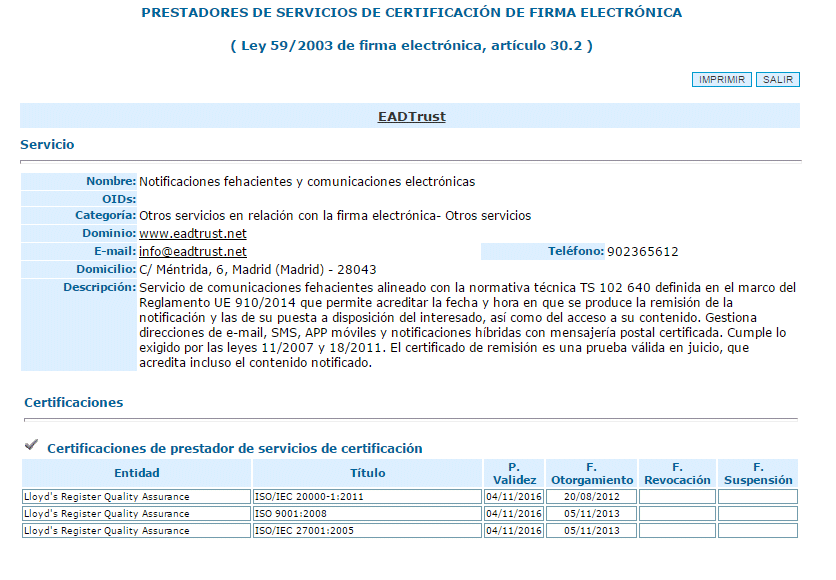Recently, the Civil Procedure Act has undergone some changes due to the publication of Law 42/2015, of 5 October, reforming Law 1/2000, of 7 January, on Civil Procedure (“B.O.E.” 6 October).
Article 162 concerning Acts of communication by electronic, computerized and similar means is reworded as follows:
1. Where the judicial offices and the parties or the addressees of the acts of communication are obliged to send and receive them by electronic, telematic, infotelecommunications or other similar means, which permit the sending and receipt of documents and documents, in such a way that the authenticity of the communication and its content is guaranteed and there is a reliable record of the sending and receipt in full and of the time at which they were made, or when the addressees opt for these means, the acts of communication shall be made by them, with the appropriate receipt slip.
The professionals and addressees obliged to use these means, as well as those who choose to do so, must inform the judicial offices of the fact that they have the means indicated above and the electronic address enabled for this purpose.
An electronically accessible register of the means indicated and the corresponding addresses of the public bodies and professionals obliged to use them will also be set up at the Ministry of Justice.
2. In any of the cases referred to in this Article, when three days have elapsed without the addressee accessing the contents of the communication by said technical means, except for those carried out through the notification services organised by the Bar Associations, it shall be understood that the communication has been legally effected and that its effects have been fully deployed.
Exceptions will be made in those cases in which the addressee justifies the lack of access to the notification system during this period. If the lack of access is due to technical reasons and these persist at the time of notification, the act of communication will be carried out by delivery of a copy of the decision. In any case, the notification shall be deemed to have been validly received at the moment when the possibility of access to the system is established. However, if access is granted after this period has elapsed but before the notification is made by delivery, the notification shall be deemed to have been validly made on the date that appears on the receipt certifying its receipt.
No electronic communications will be made to professionals during the month of August, unless they are working days for the corresponding actions.
3. Where the authenticity of decisions, documents, opinions or reports submitted or transmitted by the means referred to in the preceding paragraph can only be recognised or verified by direct examination or by other procedures, they may, however, be submitted in electronic form by means of digitised images of the same, in the manner provided for in Articles 267 and 268 of this Law,
although, in the event that any of the parties, the court in family, incapacity or filiation proceedings, or the Public Prosecutor’s Office, should so request, they will have to be provided in their original paper support, in the period or procedural moment indicated for this purpose.
It can only be presumed that the requirements of the aforementioned article are met when qualified reliable notification systems are used as provided for in European Regulation EU 910/2014. These systems must comply with the TS 102 640 standard and their providers must be registered in the census of Digital Trust Service Providers of the Ministry of Industry, Tourism and Trade.
Servicios de Confianza Digital del Ministerio de Industria Turismo y Comercio.


